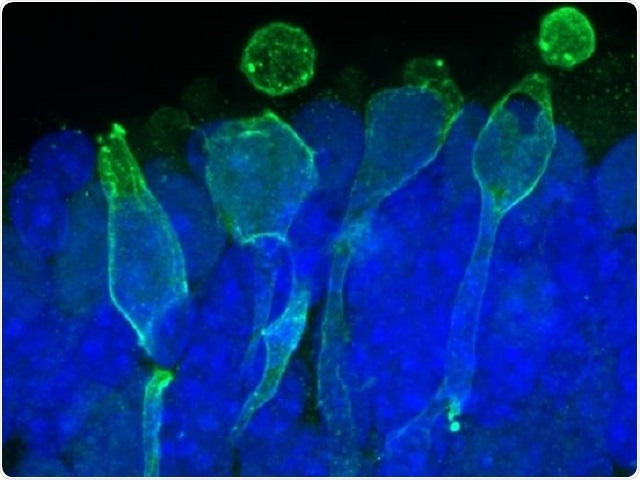AMSBIO report that researchers from the Medical University of Vienna (Austria), have used Lipidure® - CM5206 to coat channels in their novel microfluidic devices, to prevent cell adhesion.

Retinal organoids grown on Lipidure-coated plate (courtesy: of Dr. Valeria Chichagova (Newcells Biotech) and Prof. Lako (Newcastle University)
The aim of the research by the Medical University of Vienna was to create physiological-relevant in vitro tissue models that offer better predictability and the potential to improve drug screening outcomes in pre-clinical studies. Despite the advances of spheroid models in pharmaceutical screening applications, variations in spheroid size and consequential altered cell responses traditionally have led to non-reproducible and unpredictable results. Having developed a novel microfluidic multisize spheroid array - the researchers characterized it using liver, lung, colon, and skin cells as well as a triple-culture model of the blood-brain barrier to assess the effects of spheroid size on anticancer drug toxicity and compound penetration. The reproducible on-chip generation of 360 spheroids of five dimensions is demonstrated in a recently published paper**.
Dr Mario Rothbauer, a Group Leader at the Medical University of Vienna commented "I’ve worked with anti-fouling surfaces for cell-based applications my entire career and so far, the Lipidure®-CM5206 has proved to be the most reliable and straight-forward approach for generation of cell repellent surfaces on microtitre plates, as well as more the complex culture environments of microfluidic, lab-on-a-chip and organ-on-a-chip systems. For our latest project we screened a panel of primary and cancer cell lines including lung, liver, gut, dermal fibroblasts and brain endothelial cells; Lipidure®-CM5206 did not let us down a single time throughout those many years."
Lipidure®-CM5206 is a biocompatible and hydrophilic white copolymer made up of repeating units of 2-(methacryloyoxy) ethyl phosphorylcholine (MPC). Lipidure®-CM5206 is designed to mimic the cell membrane surface and its molecular structure is the key for its highly hydrophilic nature and extremely low toxicity.
Lipidure® coating of microtitre plates and microfluidic devices provides a superior low attachment surface for the production of state-of-the-art 3D cell culture. Formation of organoids, spheroids, tumorspheres, embryoid bodies and neurospheres using Lipidure® coated microtitre plates have been demonstrated for cell types including ES and iPS (human and mouse), NIH3T3, pre-adipocytes, HepG2 and other cancer cell lines as well as primary neuronal cells.
For further information on the use of Lipidure®-CM5206 coated low adhesion microtitre plates and microfluidic devices please visit www.amsbio.com/Lipidure-Coat.aspx or contact AMSBIO now on +44-1235-828200 / +1-617-945-5033 / [email protected].
To read the Medical University of Vienna paper 'A Microfluidic Multisize Spheroid Array for Multiparametric Screening of Anticancer Drugs and Blood–Brain Barrier Transport Properties’ please visit https://onlinelibrary.wiley.com/doi/full/10.1002/advs.202004856